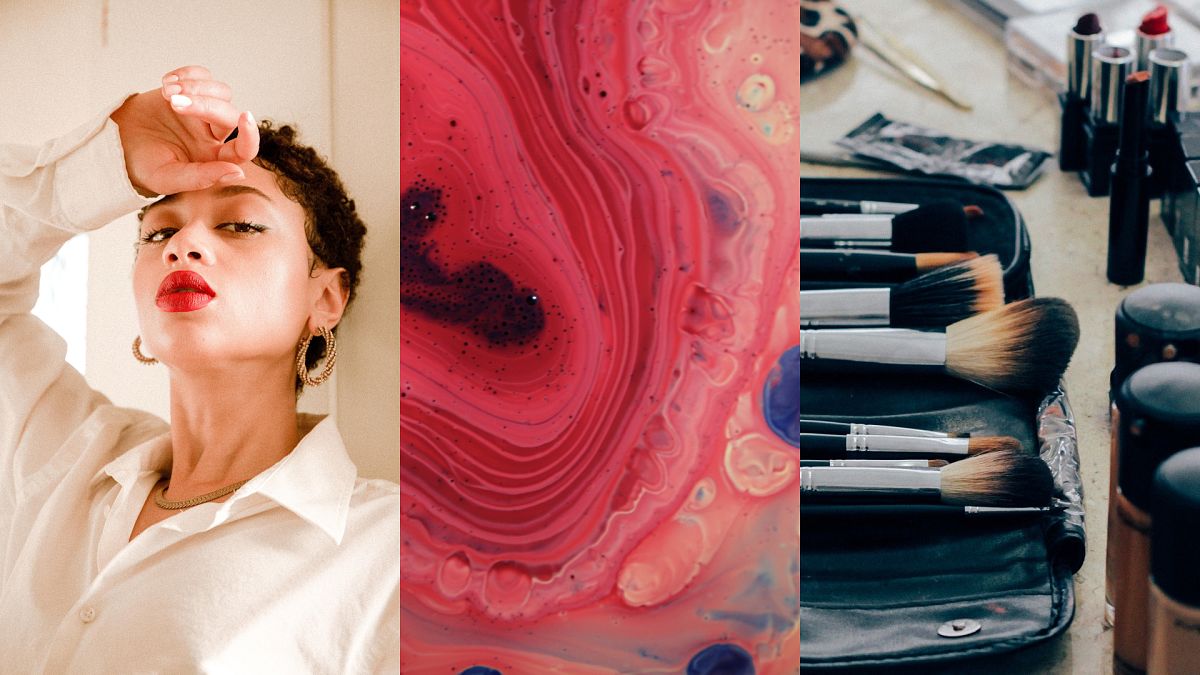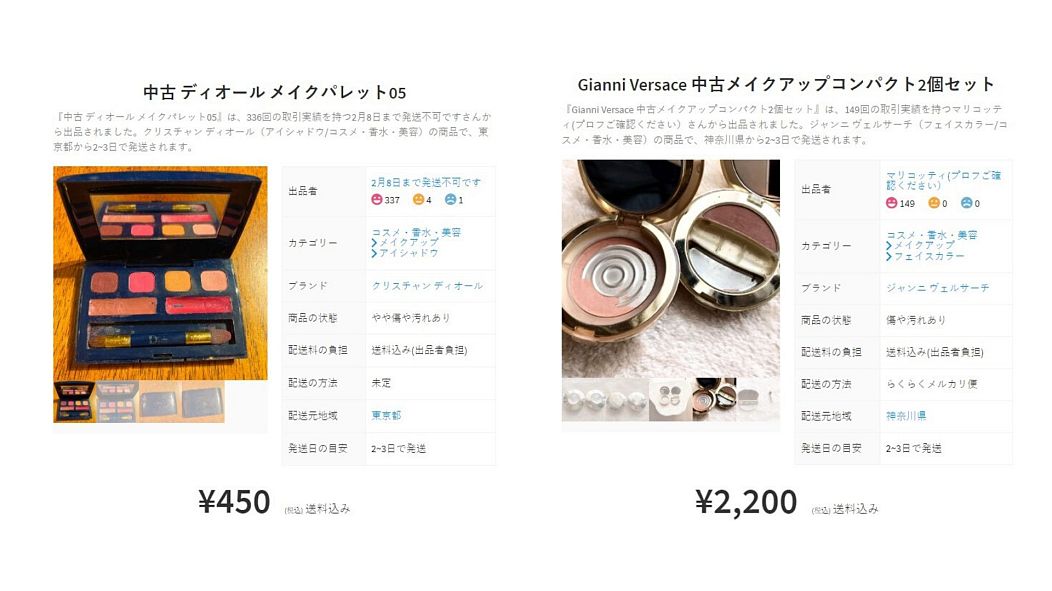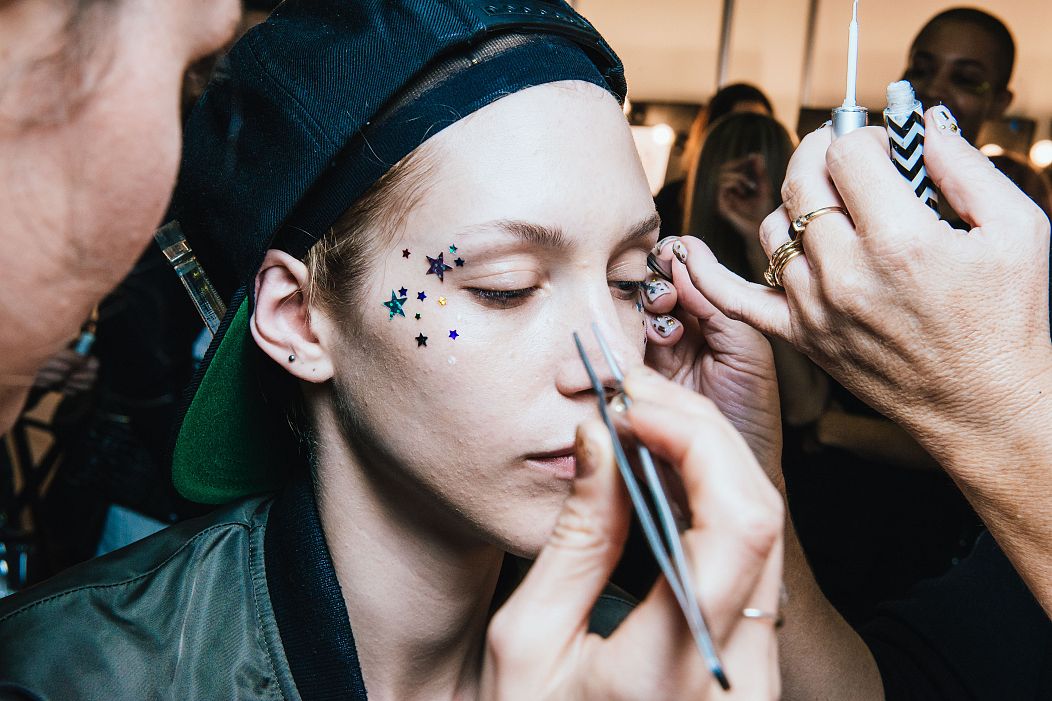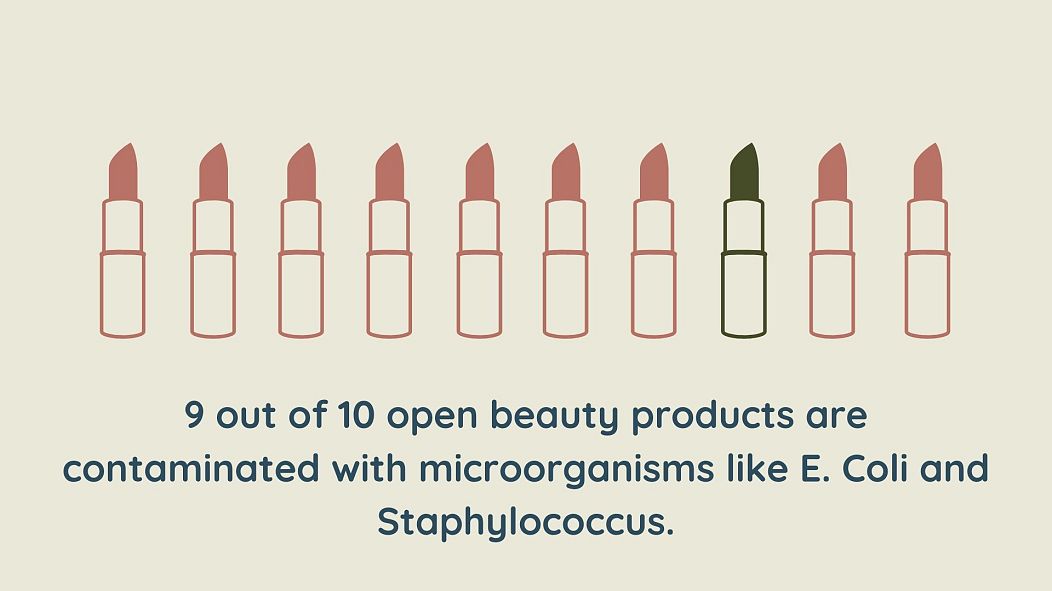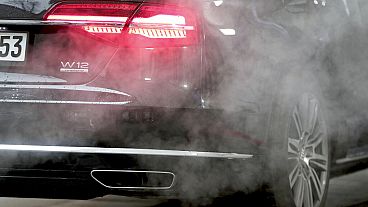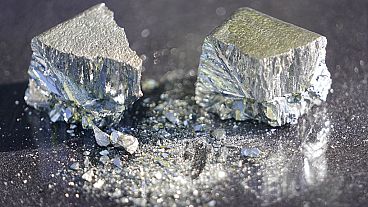Welcome to the dirty and dangerous world of resale’s next big trend.
We’ve gone wild for resale in the last 12 months. Marketplaces with shiny new apps have popped up all over the place helping us to make the most of our unwanted clothes, jewellery and even furniture. As platforms like The RealReal and **thredUP **boom, there could be an alternative market on the rise in 2020, beauty.
It’s already a thing in Japan where luxury obsessed Millenials are fuelling the trade of far from new high-end products. Mercari, a popular peer-to-peer marketplace, allows the resale of beauty products and a quick search of the site turns up used a wealth of products. Versace compacts, Chanel blushes and eyeshadows and a slew of Japanese luxury brands; all very clearly pre-owned and sometimes more than 50 per cent gone.
An ethos of reducing waste, called mottanai, is behind this effort to squeeze every drop out of expensive beauty products. Reducing our bathroom waste is long overdue as the modern personal care industry relies heavily on plastic. In the US alone packaging on products has seen a more than 120 times increase since 1960 amounting to 72 tonnes of solid waste in 2017. Selling the things we don’t want or don’t like to other people could help to cut down on what we bin.
A matter of trust
Whether or not makeup resale takes off is dependent on if buyers feel they can trust the items they are getting. There is no real way to know if the items you buy are an unwanted birthday present or faked products made cheaply for a scam. If you haven’t seen Broken on Netflix then take a look as counterfeit items have been found to contain a horrendous list of ingredients. Labs discovered everything from carcinogens, heavy metals and poisons to faecal matter and urine. Not really a list of things you want to be putting on your face.
Brand new, in box products are one thing, but what about stuff you have used but simply don’t like? After asking friends, colleagues and makeup enthusiasts in a number of online groups, people generally seem pretty grossed out by the idea. Most might buy a product that had merely been swatched from a big beauty influencer or someone they knew but were thoroughly put off by the potential dangers of the unknown online seller. “I cry when I see people use lipstick testers in makeup stores,” one beauty community member writes.
Someone points out to me that models and actors are made up with used products every time they work a job. It seems obvious that a makeup artist is not going to use a new product on each client but this comes with a professional understanding of the limits of sanitation.
Alice, a lifelong beauty enthusiast and Youtuber, says that she has seen a big shift recently with people looking to declutter their collections. "I think this is translating to the more casual buyer," she tells me, "it is so easy to purchase a slightly used $50 palette for $10-15 [roughly €9-14]". She says that working in modelling and acting helped to desensitise her to the idea when she saw how quickly makeup artists sanitized products between models.
Having bought "gently" used makeup herself, she says that you have to make sure to be picky about who you choose to buy from. "There are some people who 'dumpster dive' cosmetics, and while I personally think it is extremely obvious when you come across these, it's also quite disgusting." According to Alice, these products thrown away by shops can have chemicals poured over them to discourage people from sorting through the trash to find them and sell them on.
Her advice is to search for the kind of people who get bored after using beauty products just a couple of times. "I had the best luck finding reliable sellers and sticking with them," she explains. By looking through photos for condition, deciding if it was possible to sanitize and using batch codes to verify authenticity and expiration dates she created a collection of high-end palettes even when money was tight.
That being said, she points out the limitations of sanitization; "I bought quite a few eyeshadow palettes, blushes, bronzers, highlighters, and pressed powders. I would never buy mascara or lip gloss."
More than you bargained for
Great as resale may be for making sure that products don’t get wasted, it is basically impossible to sterilise makeup if a used applicator has been dunked back in once it has touched the skin. A study released at the end of 2019 found that 9 out of 10 open, in-use makeup items were contaminated with potentially dangerous bacteria like Staphylococcus and E. Coli. We aren’t very good at keeping our cosmetics bags clean and what the scientists at Ashton University found clearly reflected that.
“People may not think twice about using other people’s beauty and skincare products,” says Dr Anjali Mahto of the British Association of Dermatologists, “however this could put you at risk of sharing more than you bargained for.” Among your extras could be herpes, an “extremely contagious” virus which causes cold sores that can come back time and time again throughout your life. “The herpes virus can easily be spread by sharing lipstick or lip balm, so this should be avoided,” she says.
Eye products are also a no-go with conjunctivitis and styes a risk that could land you an appointment with your doctor. Infections like this can be painful long-lasting and are spread by sharing things like mascara wands or eyeliner where the bacteria may be breeding.
Even if you aren’t buying a used product it can be difficult to know when something might have been first opened. If the person you are buying from took a peek at the product before deciding they didn’t want it, then it has already started to degrade. “Most cosmetics will have a shelf life, which can usually be found by looking for a jar with a number on it on the product packaging” Mahto explains, adding that it is difficult to tell whether a product is out of date by just looking at it. The danger of a dried out product stretches beyond a disappointing cat-eye, it can lead to serious health problems she says.
Not so app happy
Aside from Mercari, many other e-commerce sites prohibit the sale of used makeup, most likely for exactly the reasons Dr Mahto describes. Searching eBay might bring up some listings for products that haven’t quite hit the pan but a strict policy bans used or replica perfumes and cosmetics. They say there are measures in place to keep unsafe listings off the platform and those that I send them are swiftly removed. A representative tells me they are still looking into the problem.
Similarly, a representative from Depop tells me that they “explicitly prohibit the sale of used or replica perfumes and cosmetics, as well as testers or decanters”. If you see items like this listed they encourage you to report them. In this particular instance, it seems that our concern for hygiene far outweighs the desire for environmentally friendly practice with reusable containers and solid products seen as a more reasonable direction for the future of cosmetics. As far as most of the common resale platforms and their customers are concerned, the dawn of beauty’s resale age is still a long way off.
